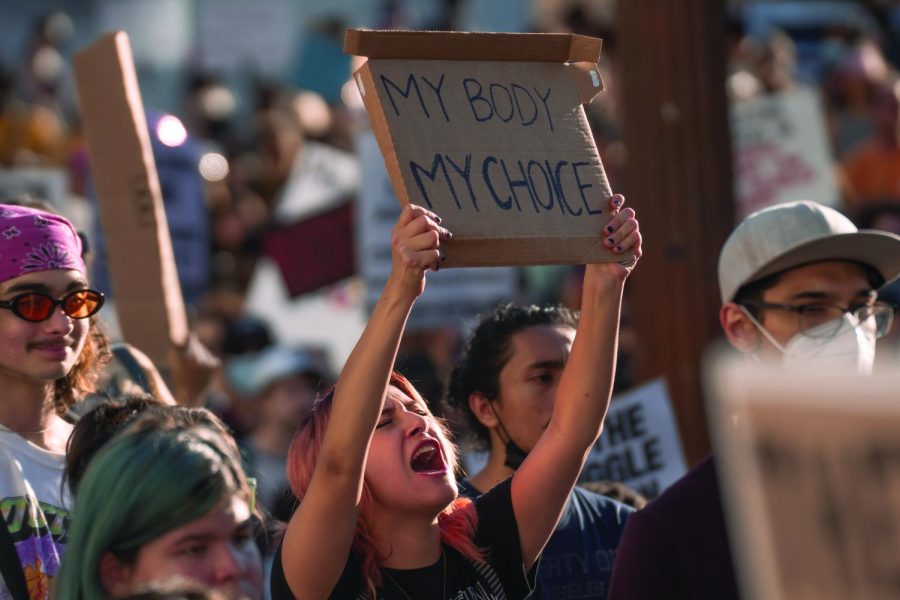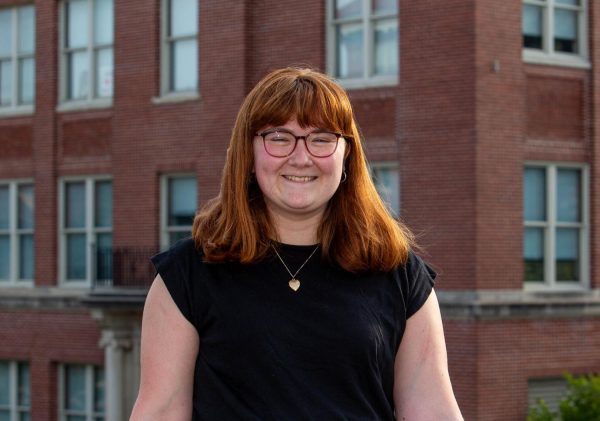History and political science departments to present “A History of Reproductive Rights”
Reproductive rights remain one of the most polarizing issues in the United States and on campus. The use of signs has become a popular form of demonstration.
Sep 19, 2022
UNI’s Departments of History and Political Science will be setting out on Tuesday, Sept. 20 to educate the community on one of the most polarizing issues in the United States right now.
In the Lang Hall auditorium from 3:30 p.m. to 4:30 p.m., the departments will be hosting a panel they call A History of Reproductive Rights. The event is also being sponsored by UNI’s Phi Alpha Theta History Honor Society and The American Democracy Project, a network of state universities aiming to prepare young people to engage in civil society.
The panel is free to attend and open to the public. It will feature four UNI faculty members across various areas of study: Barbara Cutter (history), Carissa Froyum (sociology), Emily Machen (history) and Scott Peters (political science).
Machen teaches a class on modern European women’s history. She explained that the panel will attempt to look at reproductive rights from a wide lens.
“We’re coming at the topic from a variety of different perspectives, and we’re hoping to give students some background and information to help them understand what has been happening in the U.S. and how that fits in with what the rest of the world has been doing as well in terms of reproductive rights,” she said.
Already this semester it has been clear just how polarizing the issue of abortion is on campus. On Wednesday, Sept. 14, a crowd of students gathered around the east entrance of Rod Library where a group of individuals had erected a sign reading the phrase “Abortion is not a right.”
Shortly after, a different individual stood about 50 feet away with a sign reading “abortionfinder.org,” referencing an online database of abortion providers.
Machen noted the timeliness of the panel occurring as midterm elections quickly approach. “I think our goal really is to provide people with some tools to help them make better political decisions because our students are going to be voters. This is an issue that they’re going to be voting on, and this will help them see how this issue has played out recently but also what the historical arguments are.”
Machen hopes students will be drawn to the idea of looking at reproductive rights from historical, legal and constitutional perspectives.
“When the supreme court made the Dobbs decision, they based that partly in history, but that’s not the only way to look at it from a historical perspective,” she said.
“I think this will give students a chance to see how people have thought about abortion in the past because I think people forget that the way we see things now is not the way they have always been seen,” Machen added. “There are different ways to look at the issue and depending on what country and what part of the past you’re talking about, people have had really different ideas about reproductive rights.”
Out of all of the conflicting opinions on campus, Machen emphasized that the panel is intended for everyone, no matter where they fall on the political spectrum.
“It’s a really important issue for everybody,” she said. “It’s something that is definitely shaping our political system right now in really significant ways. Regardless of what side people are on or what perspective they have, everybody can benefit from thinking about the issue more critically.”














